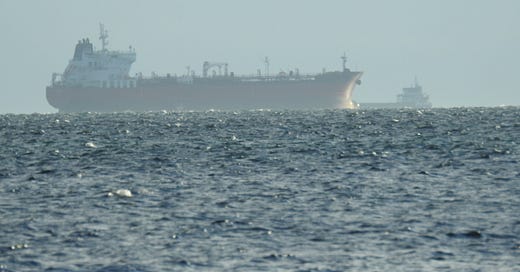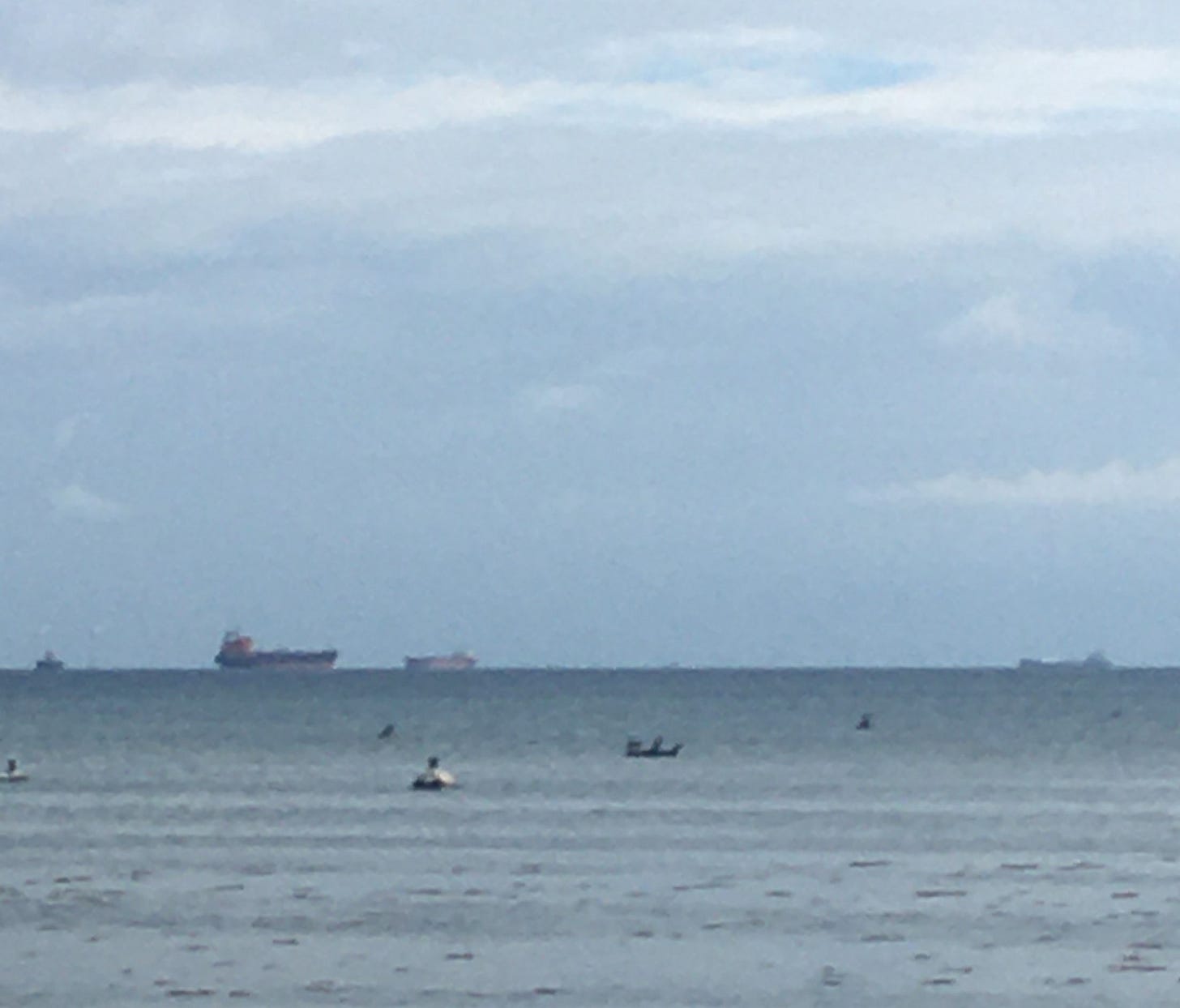Russian Ghost Ships Ban
Several hundred old, unsafe and uninsured oil tankers and other cargo ships cross international waters and present dangers of accidents and pollution on a daily basis. Russia evades the trade ban.
In an effort to prevent Russia trading goods by means of ghost ships, the Danish foreign minister now proposes further restrictions on cargo ships. It is not announced what kind of restrictions he has in mind, but the minister wants to gather decision makers in Brussels very soon to discuss a catalogue of possible actions. An obvious possibility is increased surveillance of the ghost ships and exchange of information among authorities. Putin has reacted and threatens with hard hits against new hindrances for the free transit of ships and cargo from and to Russia. Any Danish action that restricts Russian ships in the Baltic Sea will be seen as hostile and lead to retaliation, states a spokesperson for the Russian foreign minister according to Reuters on Friday.
Oil tankers in the Øresund strait today, outside Copenhagen. Photo: Hans Christensen
Russian cargo ships, or ships carrying Russian cargo have the right to sail international waters, but because of their war against Ukraine, they are banned from many countries. By international treaty, Russians can also transit through the Danish straits, even with their transponder turned off, that is incognito. Russian navy vessels can also pass but submarines must be surfaced and all will be tracked by the Danish Navy, of course. A Russian cargo ship will be subject to inspection, should it enter a harbor. Any banned cargo will be confiscated.
Two years after the ban on Russian trade, it still seems that the banned items can be transported in or out of Russian ports with relative ease. It is more difficult and more costly, but it does take place and it is quite difficult to prevent it. There are several reasons:
There are still many countries that are allied with Russia or friendly enough that they are willing to trade with Russia. However, the payments are much more difficult, because banks that are still dealing with Russia risk getting sanctioned and excluded from international transfer systems such as SWIFT, the interbank system. Trading takes place anyway, with payments in Indian Rupees or other currencies that are not under restrictions. The problem comes back if Rupees must be exchanged to US dollars or other major currency. That would be considered money laundering. Alternatively, the ancient practice of barter trade is also used, direct exchange of products without using money at all.
Banned goods like weapons can be traded secretly. That happens with North Korea, perhaps like a barter of weapons and munitions in exchange for oil and cereals.
The third option is trading through a strawman country. Luxury cars are not in scarce supply in Russia, and it seems that the German export of luxury cars to Kazakhstan has exploded in the last years. It does not seem that the Kazakhs are much more wealthy today, so most likely they do not buy cars for themselves but for re-export to their neighbor Russia.
The secret oil export is the main thing for keeping Putin’s war machine running. It goes mainly from Baltic Sea ports, through the Danish Straits and then on to destinations in the Middle East and North Africa. Some North African countries are nearly swimming in Russian diesel, allegedly.
Once the filled vessels go through narrow waters, there is a high risk for trouble. Since many of these vessels are flagged in exotic places with little control of formalities, there is no guarantee that they have the otherwise mandatory insurance. In case of an accident or a shipwreck, clean up of any oil spill or other pollution is going to be at the cost of the Danish government. There have already been incidents where ghost ships have suffered engine failure or just drifted into a grounding.
On the positive side, the Danish pilot business reports a 50% increase in business since the start of the war in Ukraine. At least some realize that it is too dangerous to navigate these shallow waters without a pilot. The pilots are obliged to take any task as long as the shipowner pays for the service. It is also a breach of treaty to block the free passage of any (reasonably) safe transport, and if attempted, it is certain that Russia will see that as a very hostile action.




